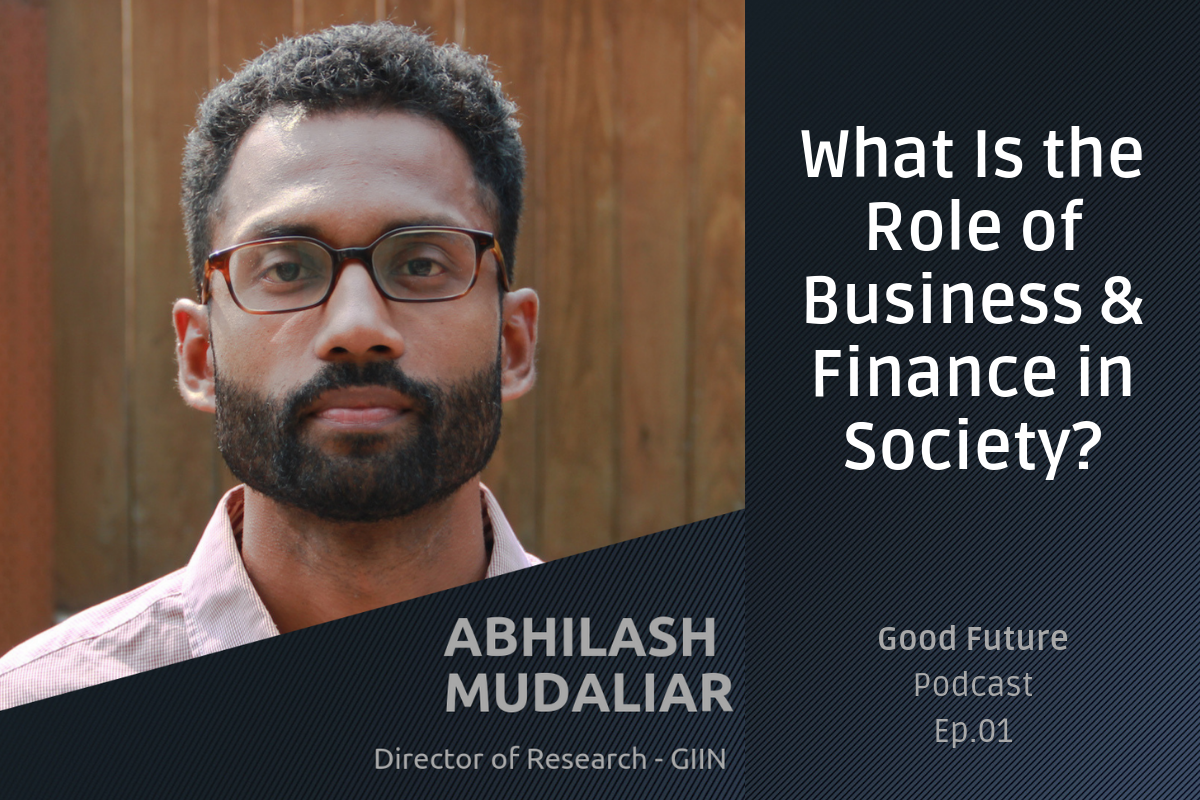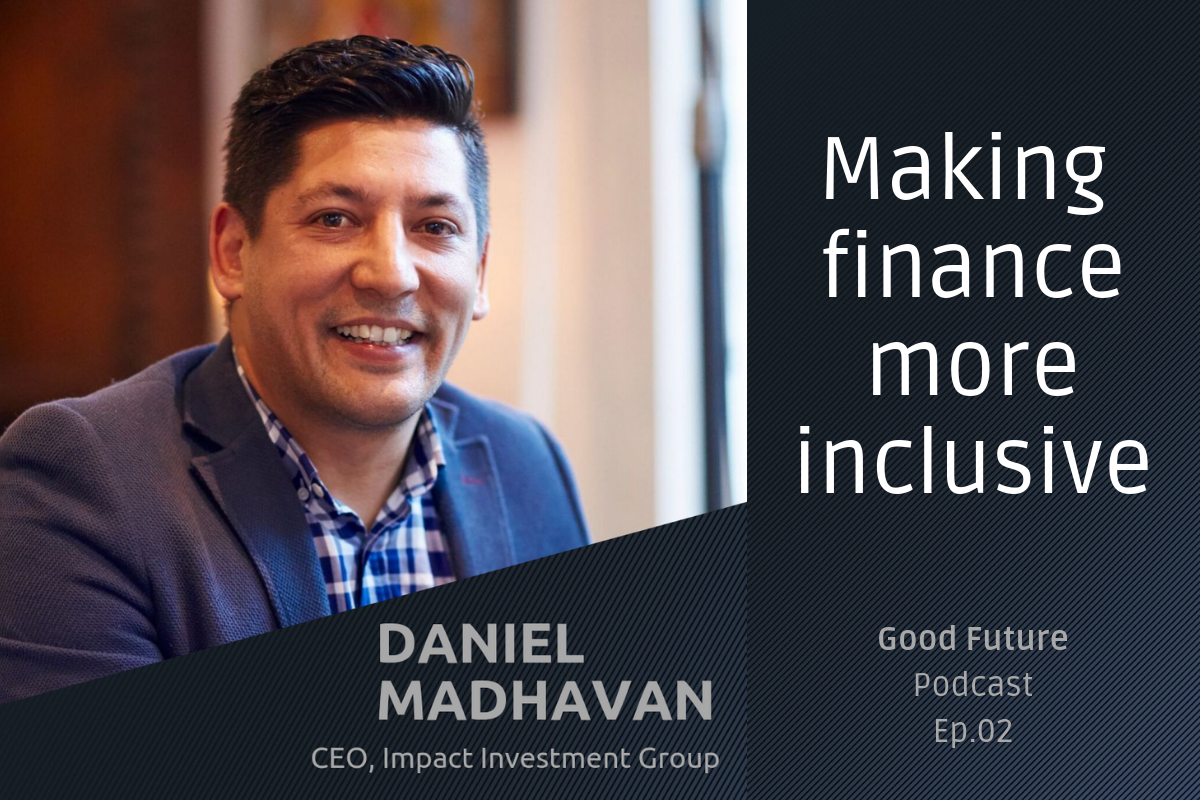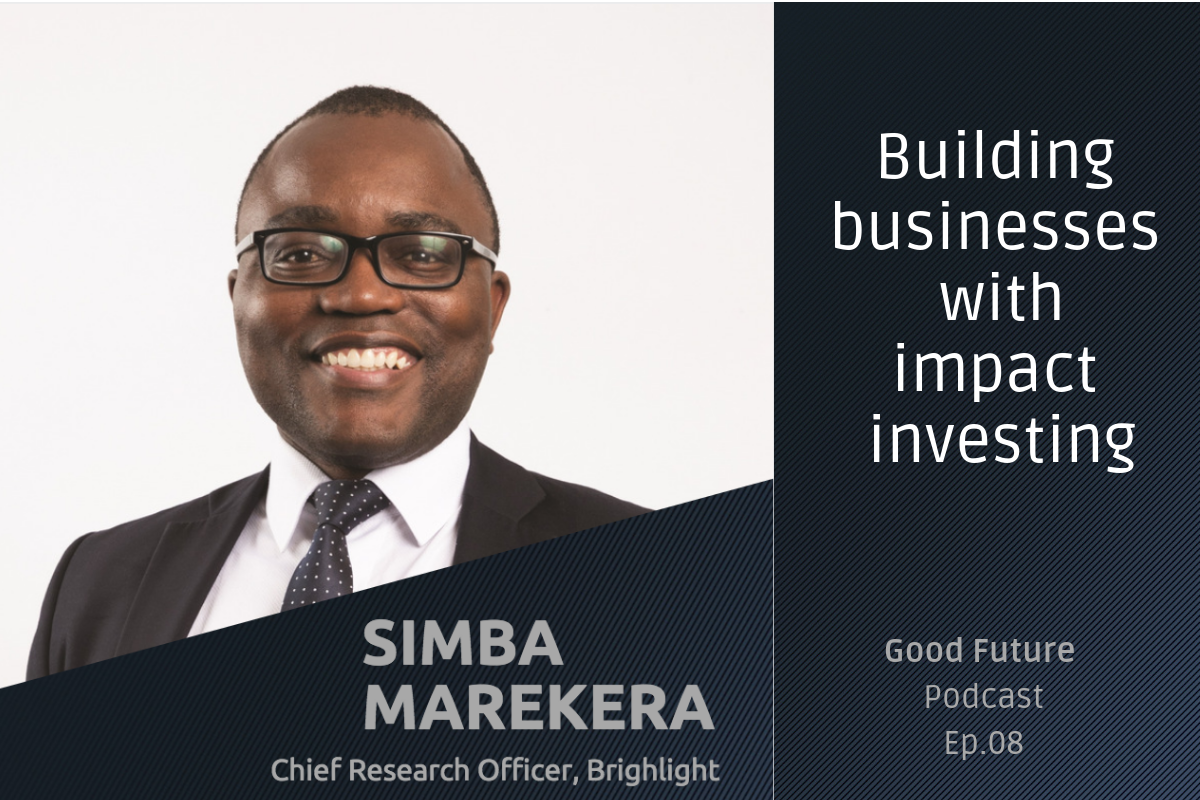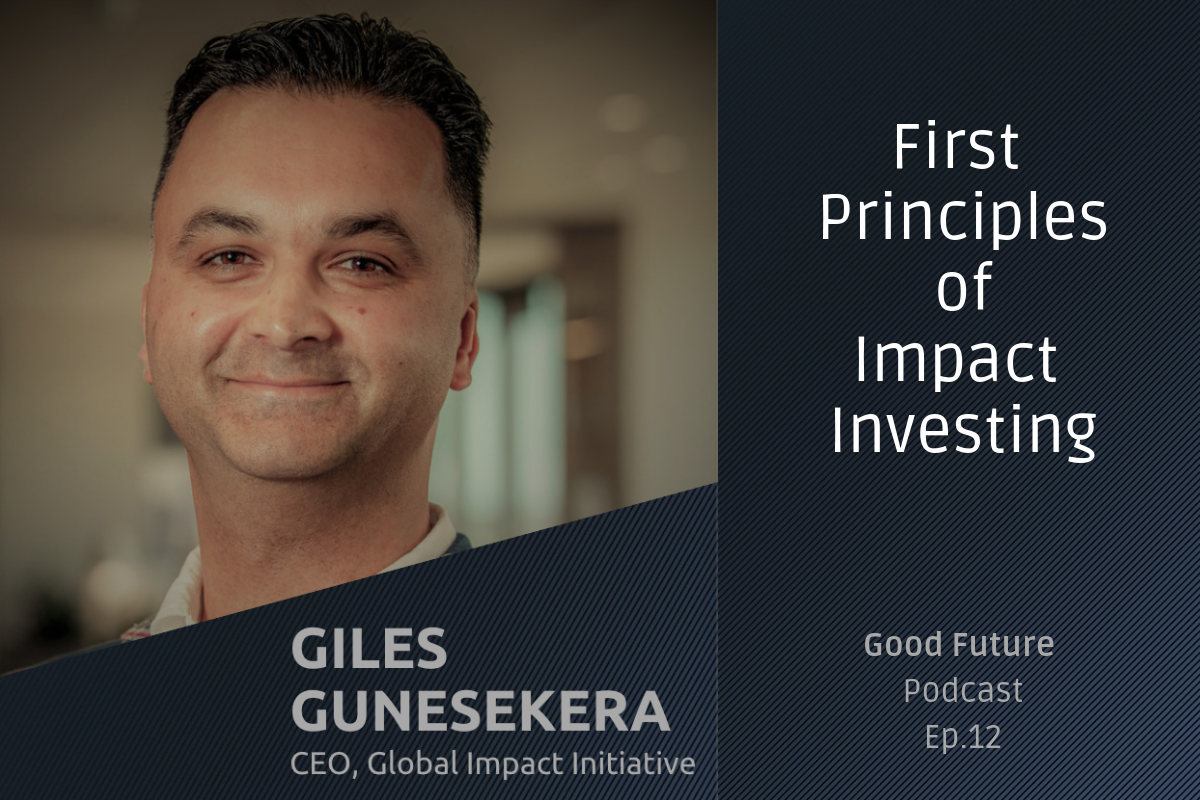Abhilash Mudaliar asks the question, is big business serving us, or is it the other way around?
“At some point, it will simply be unacceptable to invest with complete disregard for your impacts on people and the planet. That’s not to say that all investing will become impact investing in its strictest sense, but rather, principles such as long-term thinking, will become normal practice both because it’s good for the planet, but it’s also good for the bottom line.” Abhilash Mudaliar.
He’s equal parts pragmatist and idealist, it’s a fine line to tread, but it’s the essence of impact investing, where profits are as important as social and environmental impact. Abhilash is the Director of Research at the Global Impact Investing Network (GIIN), an organisation that works to nurture and grow this nascent field of investing.
It’s a philosophy
Calling it an industry isn’t quite right, and it’s not an asset class. Instead, impact investing is a philosophy that can be applied to any investment. It requires the investment earn a financial return, while also earning a measurable positive impact.
It begs the question of what damage all our other ‘regular’ investments are doing? And that’s the long-term hope of impact investors. That one day, it will cease to be relevant, because all investments will have to measure their impact, both good and bad.
In order to get there, we’re going to need some clear principles and defined standards. In Abhilash’s view, this would come from technical innovations, involving a common set of standards for impact measurement; as well as new norms that place social and environmental impact as a key factor in financial decision making.
And progress is being made at the highest levels.The IFC have launched a major project on this topic, it’s open for input now.
Universal principles are always going to be a challenge, getting global agreement on anything is a mammoth task. But it’s vital, in order to make adoption easier for a broader set of investors. In the end, it should operate as a measure of risk that’s not only good for the planet, but which can also boost long term returns.
People have the power in their hands
Investing is all about decision making. By adding a deeper layer of analysis around how our decisions impact the planet, beyond just financial returns, the potential is huge.
“Customers are researching a company’s business practices. Eager to know who is in their supply chain, what are the working conditions like? How are the materials sourced? All of that is fundamentally changing the social expectations about the role and purpose of business and finance in society.” Abhilash says.
But of course, I can hear a few of you saying; “But I have no money to invest! I don’t have the power of these giant investment companies.”
A small shift by a lot of people can have a big impact.
Consider you superannuation (pension) fund. In Australia we all have a super fund and you can certainly have a say in where your money is being invested.
While the financial side of it may be overwhelming for some people, I’d suggest looking into the new breed of funds that invest in line with your values. Get on the phone, ask your fund if they have factored the future risks of climate change into your portfolio, or if their investments are helping to achieve the SDGs?
You can also send a message with where you choose to shop. We’re seeing it more and more, companies making major changes as a result of being called-out for everything from human rights abuses, wage fraud or environmental destruction. And most often they’re led by grassroots campaigns that we can all be a part of.
As Abhilash says:
“What gives me hope is impact investing, but also other movements, like the #metoo movement, which are really taking off and finding strong momentum in recent years… I think it sends a clear signal that there are enough of us who are neither satisfied with the status quo, nor resigned to the idea that we’re powerless to influence change, and the growing numbers of talented people committed to working towards the future they wish to see, is really what gives me hope.”
Good Future’s Good Books
Abhilash recommended some great books this week. Have a read and let us know what you think…
By Jed Emerson
“Jed asks us to take a step back, and to really understand the origins of our current economic system and to challenge the norms or conventions that we take for granted. And to really think about the ultimate purpose of capital in society.”
WINNER TAKES ALL: THE ELITE CHARADE OF CHANGING THE WORLD
By Anand Giridharadas
“This book offers a criticism that most international development work doesn’t fundamentally challenge status quo systems. But rather, just makes marginal improvements while still preserving the privileges of those that are doing good, and allowing them to feel good about themselves.
The author includes impact investing amongst these approaches that he criticizes. Now we at the GIIN feel this is perhaps not quite as nuanced as it might want to be, and we’re not really interested in marginal or cosmetic improvements to the impact investing system, the vision we’ve outlined in the roadmap report is about transformational change in the purpose and functioning of the financial markets more broadly.
I think this book is a good reminder of how not to do international development well. And, it’s really important for those who are bullish on impact investment to be aware of some of these criticisms as well.”
CONSCIOUS CAPITALISM: LIBERATING THE HEROIC SPIRIT OF BUSINESS
By John Mackey, Rajendra Sisodia
Links – mentioned in the podcast…
The Landscape for Impact Investing in Southeast Asia: A report by the GIIN, Intellecap and Australia’s DFAT – Click here
The GIIN’s Annual Impact Investor Survey – Click here
The GIIN’s market roadmap report – Click here
Follow us…
Our Instagram is pretty great, check it out over HERE
My Twitter is over HERE
And you can get me on LinkedIn HERE
Disclaimer:
This document is intended to be purely explanatory, it is not a source of investment advice.







